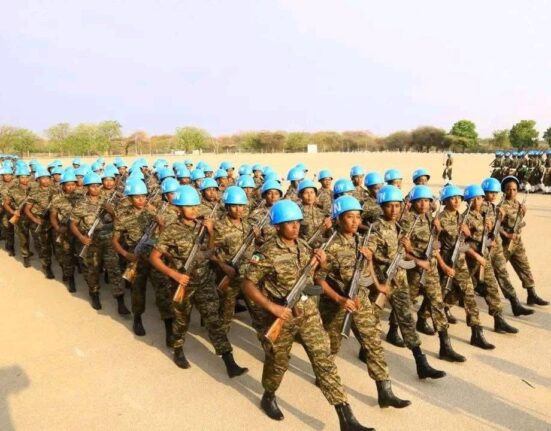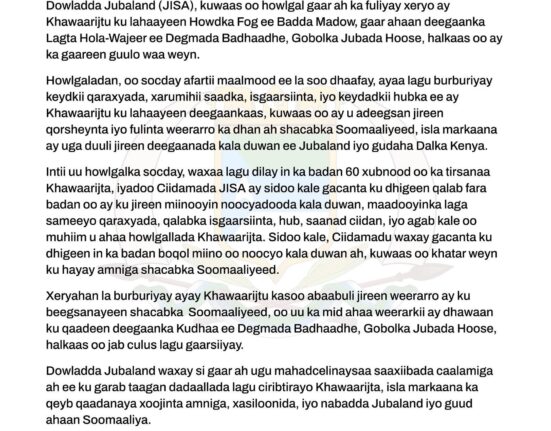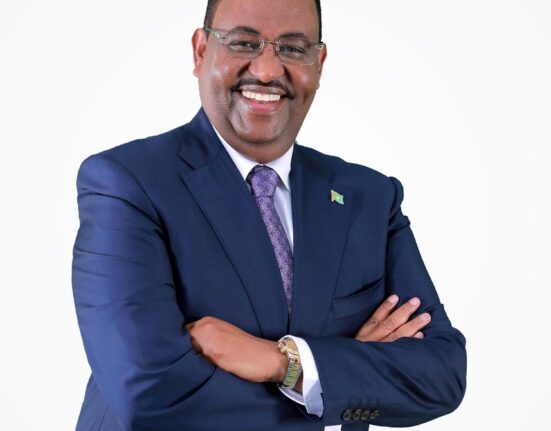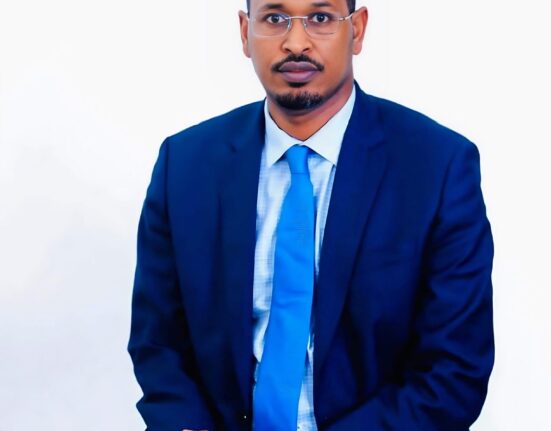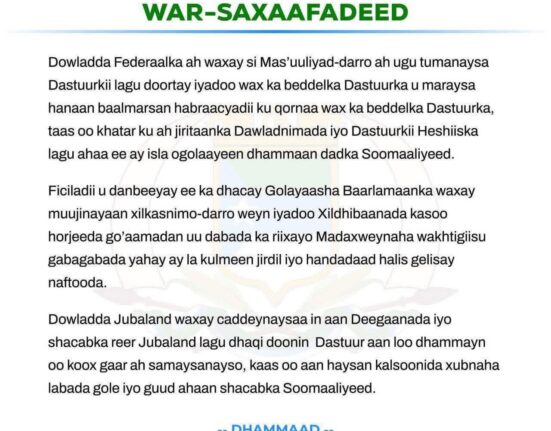By Mohamed Xirsi
Political analyst and scholar Of Political Science .
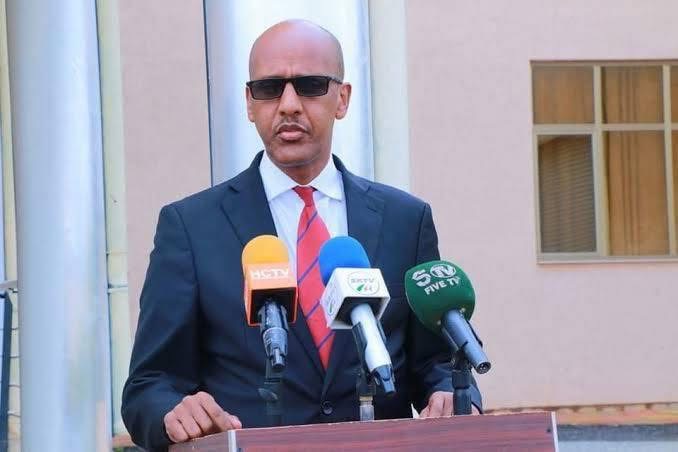
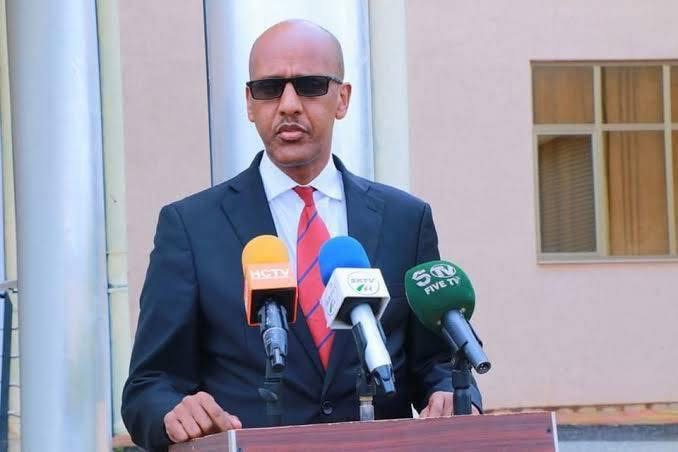
June 11, 2025.
Copyright Notice: The photo used in this article is sourced from Google and is used for illustrative purposes only. All rights and credits belong to the original owner or creator.
The Somali Regional State of Ethiopia witnessed a significant political shift in 2018 when Mustafe Muhumed Omar assumed office following the collapse of the previous authoritarian administration. His rise came amid national reforms and was welcomed with optimism, particularly by those who had long suffered under a tightly controlled, often repressive system. However, seven years into his leadership, Mustafe’s administration is facing mounting criticism for institutional collapse, deepening corruption, and a return to clan-based political maneuvering that risks unraveling the region’s fragile progress.
A Mixed Legacy Inherited
Mustafe Omar inherited a government that had serious flaws—particularly in its approach to human rights, freedom of expression, and political participation. These were widely documented and led to public frustration and eventual change.
However, the previous administration had also established important systems that contributed to regional stability and long-term development. These included the formation of a strong regional security apparatus, efforts to curb corruption within government ranks, and the depoliticization of public institutions by reducing overt clan-based interference. Moreover, during that period, significant infrastructure projects, such as roads, airports, and referral hospitals, were initiated to improve service delivery across the region.
Early Momentum Under Reformists
In the early days of Mustafe’s leadership, especially when Adem Farah Ibrahim served as the region’s Vice President, there was noticeable momentum. Project implementation was more efficient, public institutions operated with a degree of professionalism, and corruption was far more contained than what is seen today.
This period of early reform was characterized by inter-institutional coordination, optimism, and a strong focus on inclusive development. Many had hoped this direction would continue.
The Shift Toward Clan Politics and Institutional Erosion
Unfortunately, what followed was a sharp decline in institutional integrity. Mustafe Omar gradually abandoned broader reformist ideals and replaced them with narrow political strategies grounded in clan favoritism and elite patronage. Under his administration, the government system has been heavily factionalized, with appointments and public resources distributed based on clan loyalty rather than merit or public interest.
This erosion of professionalism within government institutions has weakened service delivery, undermined administrative cohesion, and disillusioned many civil servants who had once believed in the reform agenda.
Corruption: From Contained to Widespread
Perhaps the most disturbing trend under Mustafe’s leadership is the rapid rise of systemic corruption. While corruption has long been an issue in the Somali Region, the current scale is unprecedented. Today, looting of public property is openly tolerated, and competition among political elites has become less about leadership and more about wealth accumulation.
Regional budgets are poorly managed, procurement processes lack transparency, and public development projects are regularly delayed, inflated in cost, or never completed. The sense of accountability that once existed has all but disappeared.
Development Delayed, Progress Reversed
Despite public statements and media coverage suggesting continued progress, the reality on the ground tells a different story. The major infrastructure projects credited to Mustafe’s government—such as airports, referral hospitals, bridges, and roads—were either inherited, federally supported, or started during the early post-reform period.
Today, these initiatives are stagnating. Implementation has slowed, oversight is minimal, and communities remain underserved. Compared to the period when reform-minded officials like Adem Farah were actively involved, the present pace of development is disappointing.
Undermining Public Trust and Regional Unity
Mustafe’s administration has also eroded public trust by deepening inter-clan divisions. By turning governance into a tool of clan loyalty rather than inclusive state-building, he has alienated many segments of society. The sense of a common regional identity has given way to sectarianism and favoritism, making it difficult to pursue unified goals or resolve local disputes peacefully.
Furthermore, the politicization of local security forces and administration has weakened the credibility of regional institutions, including the judiciary and civil service.
Conclusion: A Region in Crisis and in Need of Redirection
Seven years after taking office, Mustafe Omar’s leadership has strayed far from the promises of reform and institutional rebuilding. The government he inherited, though flawed—offered a foundation for improvement. Instead of strengthening that foundation, he has allowed it to collapse under the weight of political favoritism, corruption, and administrative disarray.
The Somali Region today is marked by growing discontent, underperformance in public services, and a sense of lost opportunity. If urgent action is not taken to reverse these trends, the region risks long-term instability and continued marginalization.
It is time for the Somali people, intellectuals, and political actors—both inside and outside government, to demand a new direction rooted in accountability, professionalism, and inclusive governance. The region deserves better—and it is not too late to reclaim the path of reform and reconstruction.
Disclaimer: The views and opinions expressed in this article are those of the author and do not necessarily reflect the official policy or position of HornCurrent.com.


